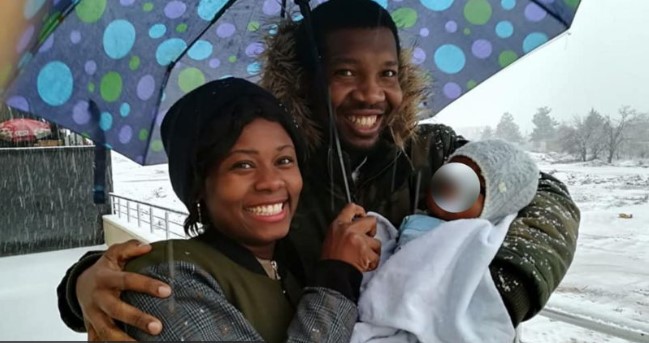The Nigerian Anglican Communion is threatening to break away from Church of England over its gay marriage approval. The Church of England’s General Synod reportedly voted narrowly in favor of same-sex marriage, with 95 votes for and 91 against in the House of Laity, and 99 votes for and 88 against in the House of Clergy.
The decision was celebrated by the Lesbian, gay, bisexual, and transgender (LGBT) community. The Church of Nigeria Primate, Archbishop Henry Ndukuba, in a statement said … “should the Church of England allow their clergy to engage in same-sex marriage, the move would mark a crucial and critical point in the life of the Anglican Communion where the future of the Communion itself would be put in jeopardy.”
Nigeria affirmed its abhorrence of gay relationships when it outlawed gay marriage, public displays of same-sex relationships, and belonging to gay groups with the passing of Same-Sex Marriage {Prohibition), SSMP, Act 2013, and signed into law on January 7, 2014 by President Goodluck Jonathan
The law imposes a 14- year prison sentence on anyone who “enters into a same-sex marriage contract or civil union,” and a 10- year sentence on individuals or groups, including religious leaders, who “witness, abet, and aid the solemnization of a same-sex marriage or union.” It also imposes a 10- year sentence on those who ‘’directly or indirectly make a public show of same-sex amorous relationship” and anyone who “registers, operates, or participates in gay clubs, societies, and organizations,” including supporters of those groups.
These lawswere inherited from the British during the colonial period in which the English criminal law was imposed upon Nigeria. The country retained these provisions upon independence, and subsequently criminalized LGBT through the adoption of SSMP Act 2013.The law caused international outcry at the time with condemnation from the global human rights organization and western governments. Human Rights Watch called it a “dangerous piece of legislation.”
Africans are used to such self-serving name-calling by the West. In the colonial and post-colonial eras, traditional African values and ethics have always been in conflict with the values and ethics of the West. Frankly speaking, the western values of individualism, the priority of the interests of the individual, and individual success, not the collective, contradict the basic African values of community and solidarity, collectivism and universalism.
Gay right is not the priority of modern African societies. They have two basic priorities. The first is the modernization of their societies by attaining high-level technological development to aid them solve the continent’s socio-economic problems of poverty, unemployment and insecurity, in order to take an equal and dignified place in the global economic system as reflected in African Union’s Agenda 2063 policy document.
The document is Africa’s development blueprints to achieve inclusive and sustainable socio-economic developmentover a fifty year period. Second priority is the development of Africa based on distinctive African traditional values. And how to integrate western achievements and technologies without losing their identity, achieve social justice, gender and racial equality, while preserving their African cultural identity, traditional ethics and traditional values.
Those values include respect for national specifics, traditional values and ethics which area counterbalance to the unified globalizing elements of ‘’western’’ ethics. That is why 32 of 54 African nations criminalize homosexuality and target gender non-conforming and transgender individuals. LGBT and gender non-conformity tend to be regarded as ‘’unnatural’’ Western behavior that have been imported from the West and threaten traditional African cultural values.
Yet the West- dominated United Nations, UN, has continued to adopt an activist stance on the issue of gay rights, an issue that does not enjoy consensus or, for that matter, a majority support among all its member states.
In February 2016 the UN Postal Administration released six new stamps tied to the UN human rights office’s Free and Equal campaign promoting equality for members of the LGBT community. The artist who designed the stamps, had argued passionately for their acceptance by the UN. He told newsmen that‘’I thought it would be a wonderful opportunity using art, to use postage stamps as a vehicle,- using art to change hearts and minds.’’
In response to this development, the Deputy Permanent Representative of Nigeria to the UN, Ambassador Usman Sarki, reaffirmed the country’s stand on the gay matter when he told the UN General Assembly that: “We wish to remind the UN to limit itself strictly to activities mandated by member states,and especiallyto promote issues that are beneficial to mankind rather than lend itself as tool to promote aberrant behavior under the guise of promoting human rights.”
Sarki declared: “What is clear to many is that the UN has now decided without any reservation or hesitation to side with a minority of member states and practitioners of this lifestyle, in complete disregard of the wishes and concerns of the majority of its member states and the populations that they represent.”
He said: “It’s all in the past. What do we have now? Various Western financial institutions are allocating large amounts of money to support women’s rights in Nigeria. In fact, the government has been instructed to spend these amounts to promote the LGBT agenda in our society.”
“We Nigerians are a very loving people and we love our women, just as we love traditional families where there is only a place for a man and a woman. The era of the battle for traditional values and our future generation is coming. And we in Nigeria want to preserve these values and prevent Western propaganda from penetrating our consciousness, our lives, and the lives of our future generations.”
It is on this grounds and scriptural facts that the Anglican Church of Nigeria is threatening to break away from the Church of England over its same-sex marriage approval.
The Sun





